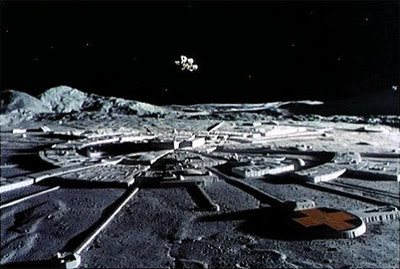
This week marks the 50th anniversary of one of the most significant milestones in the “Space Race” between the United States and the Soviet Union, and it comes at a time when Russia once again hopes to sprint head of any rival space program.
On April 12, 1961, Yuri Alekseyevich Gagarin became the first human being to enter space and orbit the Earth. (Alan Shepard’s suborbital flight a few weeks later marked the first flight of an American in space.) The 50th anniversary of Gagarin’s flight is a reminder that at several occasions during the early years of the “Space Race,” the Soviets were in the lead; for example, in addition to the milestone of launching the first man into space, the U.S.S.R. also launched the first satellite — Sputnik 1 — on October 4, 1957 and the first space station in April, 1971, and one of its astronauts conducted the first space walk on March 18, 1965.
After the arrival of Apollo 11 on the moon’s surface on July 20, 1969, many of the earlier Soviet successes were forgotten. Gagarin had died the previous year, when his MiG 15 training jet crashed. In the general concensus, America had “won” the space race.
Now, as Russia marks the 50th anniversary of Gagarin’s historic flight, there may be grounds for reevaluating that assessment. President Obama has fundamentally altered the role of NASA in the future of manned space flight, even as private companies are independently developing launch vehicles that could serve a wide variety of private or public missions. (In fact, SpaceX recently announced it plans to build the large booster since the Apollo program’s Saturn V.)
Read More
On April 12, 1961, Yuri Alekseyevich Gagarin became the first human being to enter space and orbit the Earth. (Alan Shepard’s suborbital flight a few weeks later marked the first flight of an American in space.) The 50th anniversary of Gagarin’s flight is a reminder that at several occasions during the early years of the “Space Race,” the Soviets were in the lead; for example, in addition to the milestone of launching the first man into space, the U.S.S.R. also launched the first satellite — Sputnik 1 — on October 4, 1957 and the first space station in April, 1971, and one of its astronauts conducted the first space walk on March 18, 1965.
After the arrival of Apollo 11 on the moon’s surface on July 20, 1969, many of the earlier Soviet successes were forgotten. Gagarin had died the previous year, when his MiG 15 training jet crashed. In the general concensus, America had “won” the space race.
Now, as Russia marks the 50th anniversary of Gagarin’s historic flight, there may be grounds for reevaluating that assessment. President Obama has fundamentally altered the role of NASA in the future of manned space flight, even as private companies are independently developing launch vehicles that could serve a wide variety of private or public missions. (In fact, SpaceX recently announced it plans to build the large booster since the Apollo program’s Saturn V.)
Read More
No comments:
Post a Comment